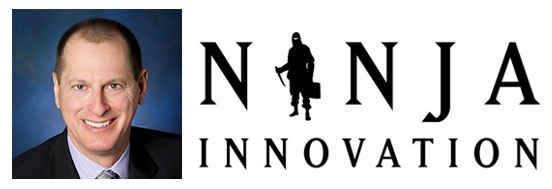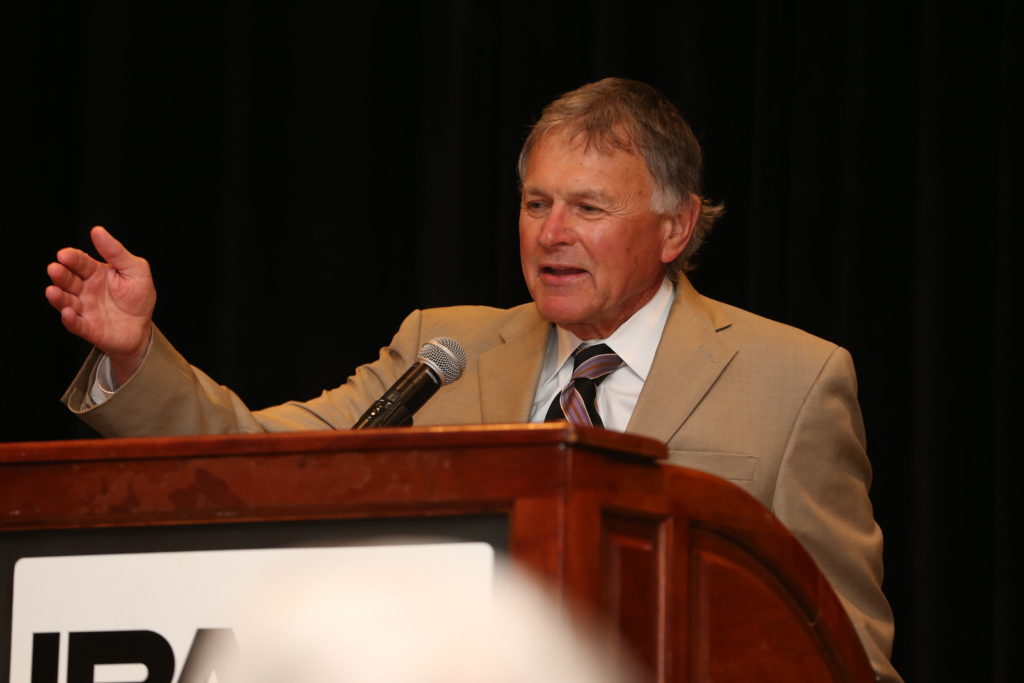 These days, there’s a lot of talk in radio circles about innovation. That’s a good thing. In an industry that has been guilty of standing pat, enjoying high margins, and not rocking the boat, risk-taking is a much-needed trait in radio companies big and small. But saying it – and actually doing it – are two very different things in a high stakes environment where everyone’s feeling the pressure to come up with breakthrough ideas – without sacrificing profits.
These days, there’s a lot of talk in radio circles about innovation. That’s a good thing. In an industry that has been guilty of standing pat, enjoying high margins, and not rocking the boat, risk-taking is a much-needed trait in radio companies big and small. But saying it – and actually doing it – are two very different things in a high stakes environment where everyone’s feeling the pressure to come up with breakthrough ideas – without sacrificing profits.
When I think of innovation, two guys in and around the industry come to mind. The first is Gary Shapiro – head of the Consumer Technology Association  (yup, the folks who bring us CES each year). He’s written the book on innovation. In fact, more than one. “Ninja Innovation” is one of Gary’s efforts that really hits home.
(yup, the folks who bring us CES each year). He’s written the book on innovation. In fact, more than one. “Ninja Innovation” is one of Gary’s efforts that really hits home.
He is a staunch believer in the power of innovation to change companies… and the world. And he truly believes the mantra, “Innovate or die.” In “Ninja Innovation,” he reminds his readers that “a rigid adherence to traditional methods is a huge hindrance to innovative problem solving.”
 And then there’s Seth Godin, marketer and strategic thinker extraordinaire. Seth’s “Poke The Box” is a wonderful little book that extols the virtues of just doing it already! Seth’s contention is that many walk this earth holding a legal pad full of ideas. But none see the light of day unless would-be innovators have the commitment to initiate and ship.
And then there’s Seth Godin, marketer and strategic thinker extraordinaire. Seth’s “Poke The Box” is a wonderful little book that extols the virtues of just doing it already! Seth’s contention is that many walk this earth holding a legal pad full of ideas. But none see the light of day unless would-be innovators have the commitment to initiate and ship.
But that’s all well and good if you’re an entrepreneur. As someone who has initiated and shipped many, many times, it is easier to get permission when you’re the CEO and the board. It’s another when you have a group of executives sitting in a cold conference room with their arms folded. What’s the pathway to innovating, and how can you most effectively sell your ideas through?
Interestingly, I learned the answer to that question a couple weeks back in Des Moines, Iowa, of all places. Seth Resler and I were part of the speaking agenda at the Iowa Broadcasters Association. I just love attending these state broadcaster associations. You meet radio and TV people from all walks of the business, always gung ho about broadcasting and their communities. As someone who spent a little time in Iowa many years ago, it all came back to me in a rush.
I always try to get to the awards lunch and dinner. Aside from seeing students being honored by these associations with scholarships (always energizing), I truly enjoy hearing from those who have been inducted in these statewide halls of fame. Rarely do I personally know these honorees, but it is always fascinating to hear the stories of how they ascended the broadcasting ladder of success.
I was not disappointed in Iowa, and in fact, was inspired – by legendary broadcaster John Reardon, and especially by Ted Stephens, a TV executive who has spent 36 years in broadcasting. From his beginnings at WHO-TV in 1980, to working his way up to key management positions with Sinclair Broadcast and Pappas Telecasting, Ted has been around the block.
And along the way, he figured out the innovation two-step:
1. Having the vision to say ‘what if?’”
2. Then running after it with irrational passion
Ted is a wonderful storyteller – an attribute that certainly helped him achieve the “irrational passion” part of the equation. He told IBA  attendees two different “against all odds” innovation sagas. And each time, they started with a wild idea (usually thought up by someone else), followed by his irrepressible force of will and enthusiasm that simply won’t accept “no” for an answer.
attendees two different “against all odds” innovation sagas. And each time, they started with a wild idea (usually thought up by someone else), followed by his irrepressible force of will and enthusiasm that simply won’t accept “no” for an answer.
In 2001, Ted somehow talked the bosses at Sinclair (actually Barry Drake green-lighted this one) into starting a news show at 9 pm – something that was unheard of. “Fox 17 News at Nine” – a unique partnership with the company’s Cedar Rapids TV station – became a hit (and profit maker) despite being met with an initial barrage of “no ways” when the idea was first floated.
And then years later, a salesperson came to Stephens when he was running KCWI-TV and KDMI-TV in Des Moines with an odd idea – put a morning radio show on television. KKGO’s “Lou, Heather, & Round Guy” was an established show, caught in the headwinds of consolidation. Ted proposed “Great Day,” a show that continues on TV to this day. As he described it, the show was “ratings agnostic” because of the power of those radio personalities, their local bonds, and their stellar brand.
After the conference, I asked Ted to parse the innovation formula – how much is creativity and how much is just plain tenacity?
Without batting an eye, he told me that it’s 75% the latter – something that innovators know to be true. It’s one thing to come up with the idea – a whole different thing to make it happen in a board room full of jaded executives who will always find it easiest to say “no.”
Ted also stressed a TV-ism that most definitely applies to radio – it’s about LOCAL. As he explained, “If you want to be irrelevant, just run network and syndication.” That was his experience in Iowa, and chances are, it’s a truism where you live, too.
And that local piece ties into Ted’s philosophy that innovation starts with a great idea, but can only be realized by going all-out to sell it through. As broadcasting companies – both radio and TV – get bigger and inevitably more top-down, the best ideas will undoubtedly come from bottom-up: local markets like Des Moines, Duluth, or Detroit.
But few will see the light of day without the unbridled fervor, exuberance, and belief that Ted mustered up to earn that green light. Those innovations turned out to be the achievements that made his career – while helping both his employees and employers win big.
Innovation is a two-prong process. As Gary Shapiro, Seth Godin, and Ted Stephens will tell you, it always starts with a great idea. But without that enthusiasm, persistence, and tenacity, even the most amazing concepts never leave the legal pad.
Initiate.
Ship.
And don’t forget the irrational passion.
Special thanks to Sue Toma with the Iowa Broadcasters Association.
- What To Do If Your Radio Station Goes Through A Midlife Crisis - April 25, 2025
- A 2020 Lesson?It Could All Be Gone In A Flash - April 24, 2025
- How AI Can Give Radio Personalities More…PERSONALITY - April 23, 2025




Absolutely! But, “irrational passion” is often misinterpreted as a character flaw or intimidates and causes CYA / CPA types to head for the hills! Broadcasters who can’t take a joke usually don’t understand RF, signal to noise ratio and how to produce a show. Innovation with in-house resources is a daily essential. Thank you Fred.
It’s a balance, Clark. Passion is key, but you can go over the top. I think a lot of this has to do with the quality of the idea, and then the sincerity and excitement that accompanies it. Appreciate you commenting.